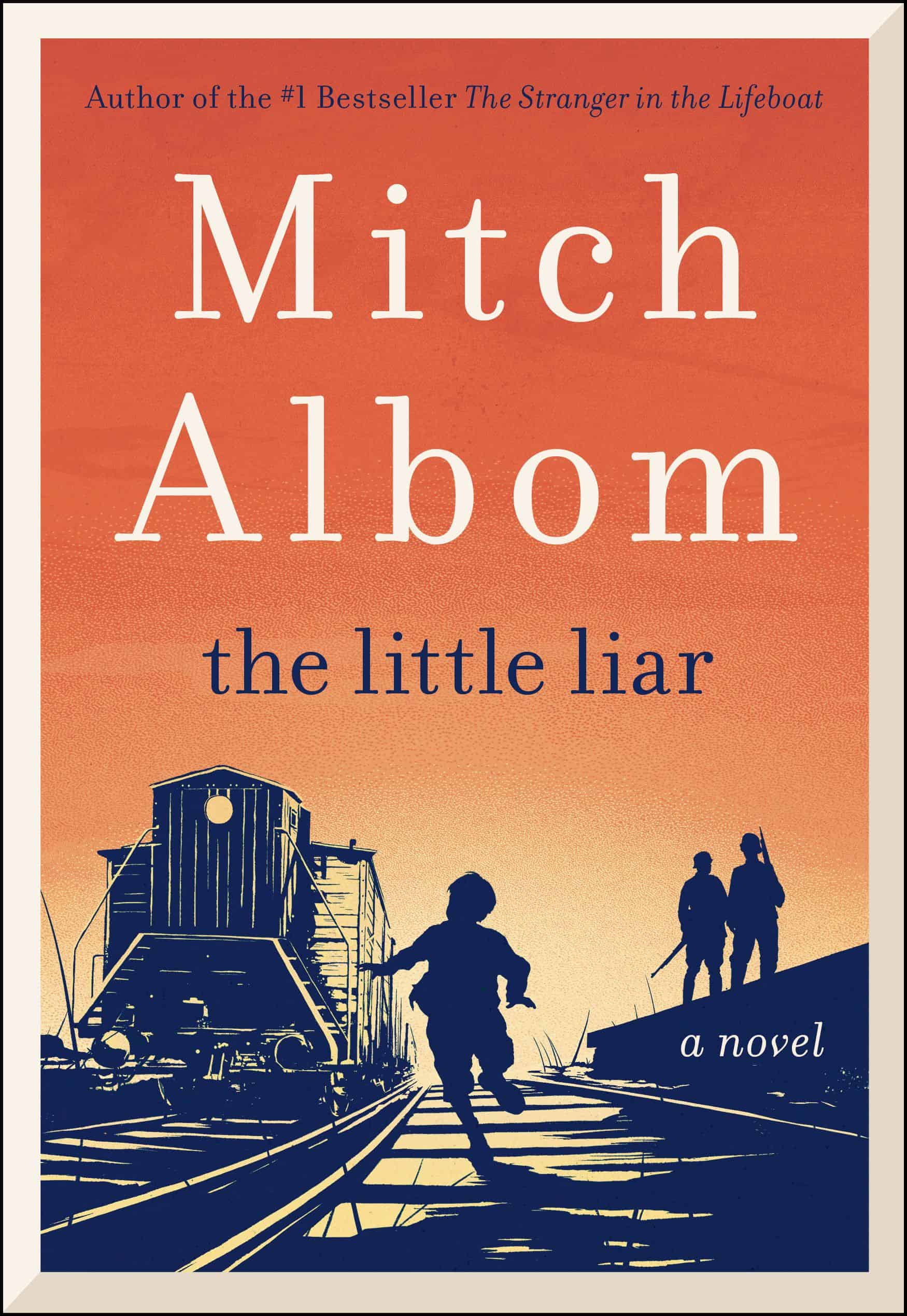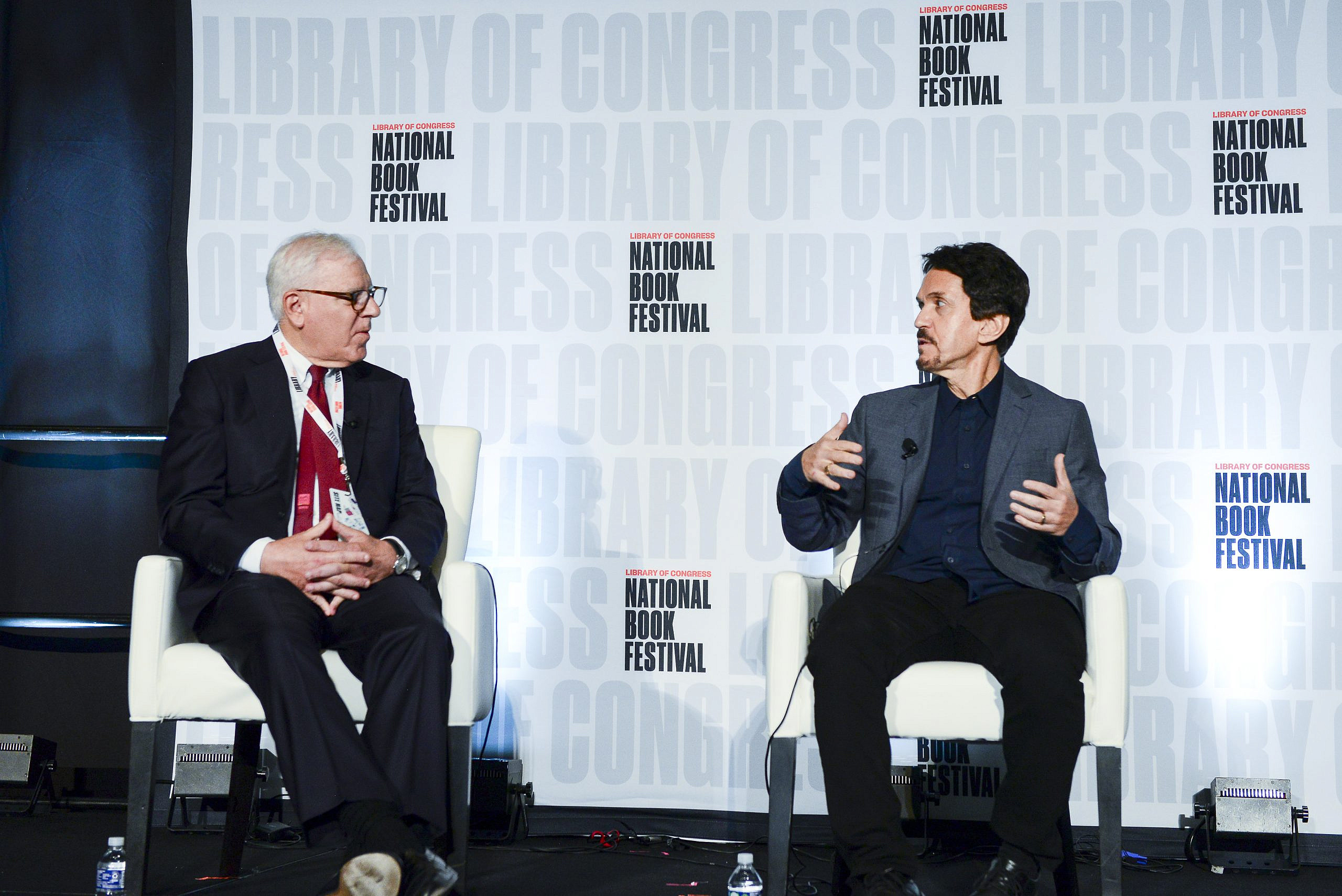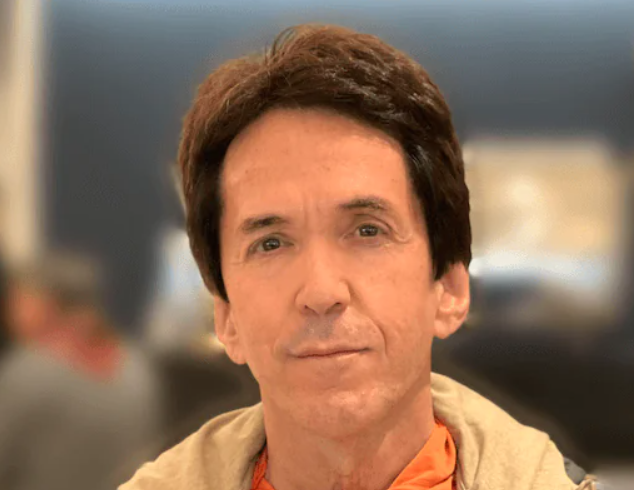On a visit to Yad Vashem 10 years ago, Mitch Albom, the sports journalist turned inspirational book author, was struck by a story that emerged from one of the video displays.
“A woman was saying that everyone always asks how come we got on these trains if they were taking us to our death,” Albom, who is Jewish, told JNS during a wide-ranging conversation at his home in Michigan.
The question stuck with Albom, and he decided to write a novel about it.
Albom told JNS that he had long wanted to pen at least one book on the Holocaust, “to remind younger people coming up that it cannot be forgotten and should never be overlooked.” He also wanted to write about the truth and deception, and “the price we pay for the lies that we tell.”
He brings his gift for tugging at the reader’s heartstrings—which came through famously in his 1997 memoir, Tuesdays With Morrie, about spending time with his dying former Brandeis University professor Morrie Schwartz—to his novel The Little Liar, which came out about a month after Hamas’s Oct. 7 attack on Israel.
Albom, 65, who counts Holocaust survivors among his extended family, writes in the new novel about Nico, his brother Sebastian and their schoolmate Fannie, all of whom hail from Salonika, formerly Thessaloniki and the site of Greece’s largest Jewish community prior to the Holocaust. (Some 56,000 of Greece’s 77,000 Jews on the eve of the war lived in Salonika, and 96% of Salonika’s Jews were killed during the Holocaust.)
The story of Greek participation in the Holocaust is not well known, according to Albom, who lived in Greece as a recent college graduate. Just 1,100 Jews returned to the Greek city after the war.
A German officer in Albom’s new novel discovers the trustworthy Nico and offers the boy a chance to save his family if he convinces fellow Jews to board trains to their “new homes” and “new jobs.” They are promised safety at their destinations.

The innocent boy—in a manner that evokes the 17-year-old Israeli boy whom Hamas terrorists used as bait, and made go door to door telling neighbors it was safe to reemerge on Oct. 7—doesn’t realize that the whole mission is a cruel ruse.
He goes to the train station platform every day and reassures passengers that the journey is safe. When the final train arrives at the station, Nico sees his family being loaded into a large boxcar crowded with other neighbors. Only when it is too late does he grasp that he helped the Nazis send the people he loved—and countless others—to their doom at Auschwitz.
‘A very heavy point about truth’
“Sebastian and Fanni miraculously survive the death camp and spend years searching for Nico, who has become a pathological liar, and the Nazi officer who radically changed their lives,” Albom told JNS.
The novel follows Nico for 40 years after the war, as he seeks redemption for his lie.
“The book is hopeful in a hopeless situation because his family and a little girl who loved him when she was young seek him out over the course of her entire life until she can find him again to tell him it wasn’t his fault,” Albom told JNS.
The author figures that it’s not so difficult to balance historical accuracy and creative storytelling—in what is sometimes referred to as “creative nonfiction” or “the fourth genre”—since “about that period of time and the people that endured it, you don’t have to go to great fictional length to be moving.”
He also aimed to make “a very heavy point” about truth and how it was abused during the Holocaust, as well as “the price we pay for abusing it,” Albom told JNS. “It’s a tricky device, but it works really well in the end.”
Judaism has played a role—albeit less centrally—in his prior books.
When a childhood rabbi asked Albom to pen his eulogy for him, the writer said he didn’t know the rabbi well enough. He sought to understand the man better, which threw him back into a world of faith he had left years prior. The result was the 2009 nonfiction book Have a Little Faith.
“I started visiting with him extensively, thinking he was going to die soon,” Albom said. “He was in his 80s, but he lived eight more years.”

Culturally Jewish
Growing up, Albom attended a Conservative Jewish day school in South Jersey after he turned 11. He was part of the large Jewish community at Brandeis University in college.
“I always have identified myself with my Jewish culture, but not very religiously involved,” he told JNS.
In addition to writing books, which have collectively sold more than 40 million copies, Albom is a screenwriter, journalist, broadcaster and philanthropist. He has funded and operates nonprofits that assist people in the most dangerous Detroit neighborhoods and has run an orphanage in Haiti since 2010.
He also finds the time to keep writing.
His books don’t emerge from just a great idea, a strong character or a twist-turning plot, Albom told JNS. It has to be something deeper.
“People come to my books because when they’re finished, they have something to think about that maybe applies to them,” he said. “If people can see themselves in your stories, they are going to embrace them at a greater level.”


























